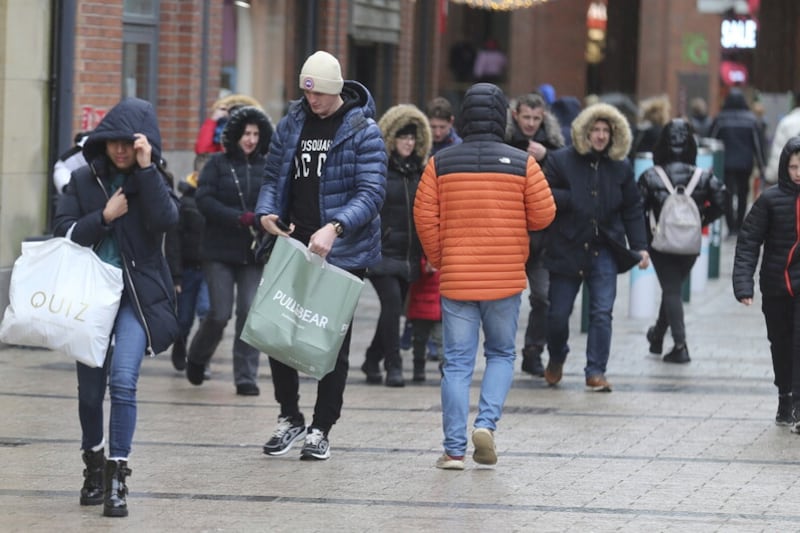THE north’s private sector remained in decline during October, a new report out today suggests.
The latest Ulster Bank purchasing managers index (PMI) indicated that business activity, new orders and employment all fell last month, albeit at a softer rate than the sharp decline reported in September.
It means that business activity in the north has decreased in each of the last eight months.
Produced by IHS Markit, the survey is considered a reliable early indicator on the pace and performance of the Northern Ireland economy.
It's based on the responses of 200 companies across the manufacturing, construction, retail and services sectors.
The September PMI reported that economic output in the north fell by the sharpest rate in seven years. The October survey indicated that new orders continued to fall at a sharp pace, with businesses reporting that their clients remain reluctant to commit to new projects amid ongoing Brexit uncertainty.
Although slower than September, Ulster Bank described the rate of contraction in new export orders as “substantial”.
Ulster Bank chief economist Richard Ramsey said while the rates of decline had eased, the picture for the private sector remains “gloomy”.
“Output, exports and employment have now been falling for eight, nine and 10 months respectively. “Northern Ireland remains rooted to the bottom of the regional league table for output and orders. Furthermore, local firms continue to see their input costs rise at faster rates than anywhere else in the UK.”
The survey did reflect a modest improvement for the north’s manufacturing and services sectors, with some areas returning to positive growth.
Mr Ramsey said that manufacturing output expanded for the first time in six months, while the rapid decline in orders appears to be levelling-off.
The survey found that services firms increased headcount, albeit marginally, for the first time in 10 months, with businesses more optimistic about output growth in a year’s time.
But the economist said those improvements must be viewed in context.
“Manufacturing’s improvement is coming off the weakest quarter (Q3) in 10.5 years. Similarly, the improvements cited by service sector firms follow multi-year lows. It remains to be seen whether these latest improvements are sustained.”
The picture for the north’s construction and retail sectors remains much more challenging.
“Both sectors saw the pace of contraction accelerate across a number of indicators, with retail reporting the fastest rates of decline amongst all sectors in terms of output/sales, orders and employment,” said Mr Ramsey.
“Retailers have reported falling sales throughout 2019 with orders falling in October at their fastest pace in almost 8.5 years. This is feeding through to employment with staffing levels falling at their fastest rate in seven years.
“These findings chime with incoming news on new car sales and demand for retail property. All of which point to subdued consumer confidence.
“Looking ahead, Northern Ireland remains the only UK region where firms expect output to be lower in twelve months’ time,” added the economist.
“However, firms are significantly less pessimistic than they were in September.
“Last month’s Brexit deal has done little to reduce the high degree of uncertainty facing businesses. With election fever now gripping the country, political uncertainty and business uncertainty will loom large in 2020.”








